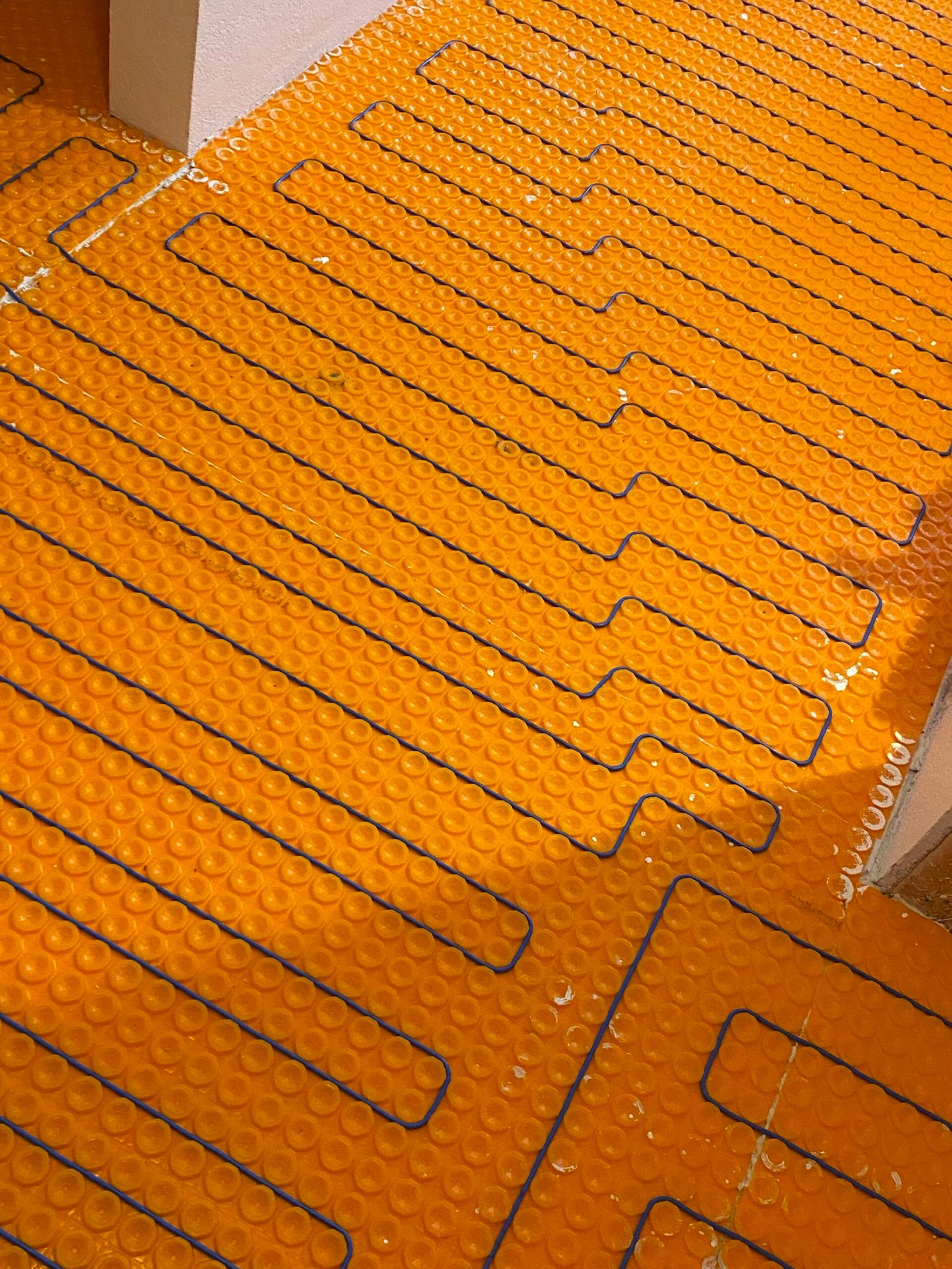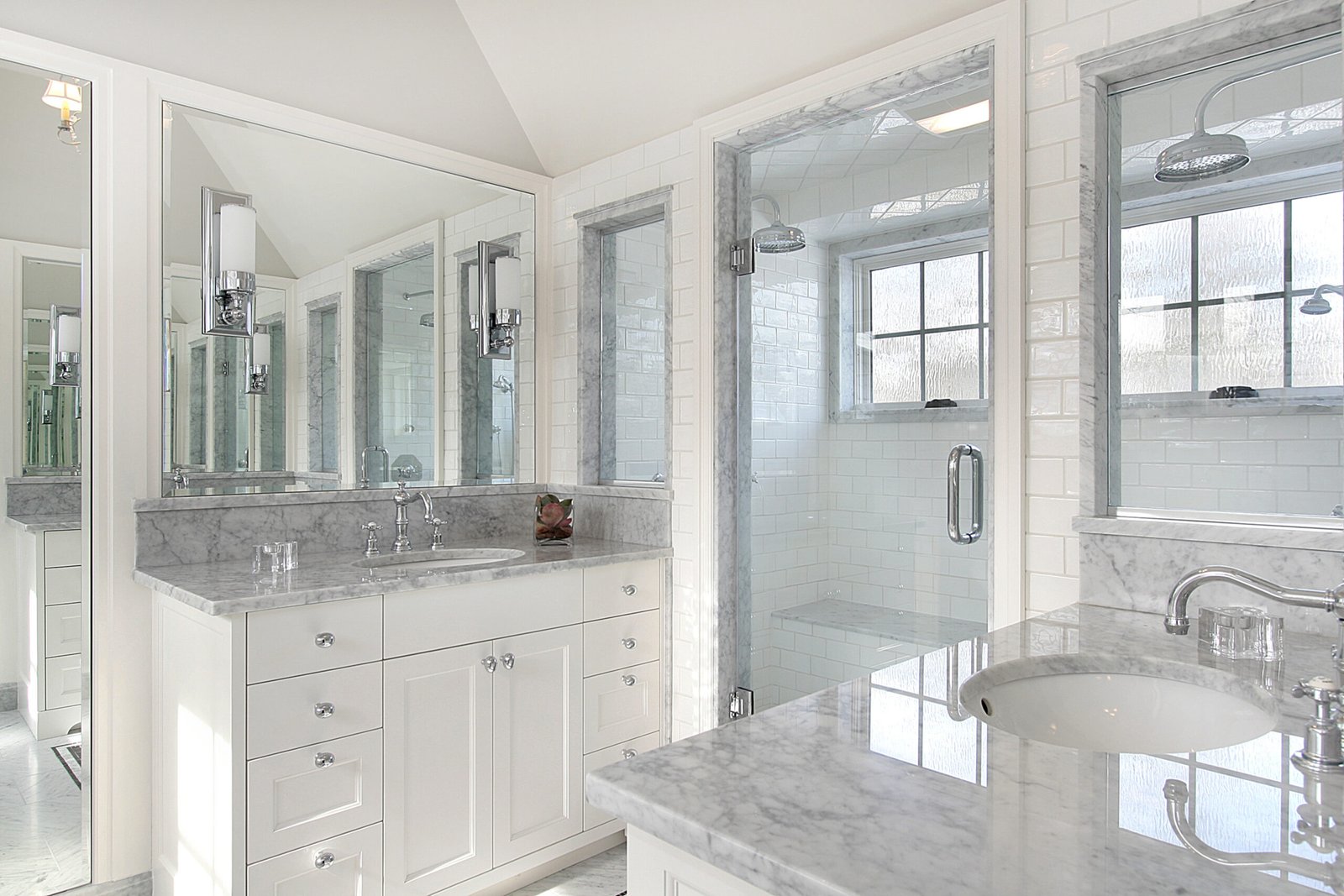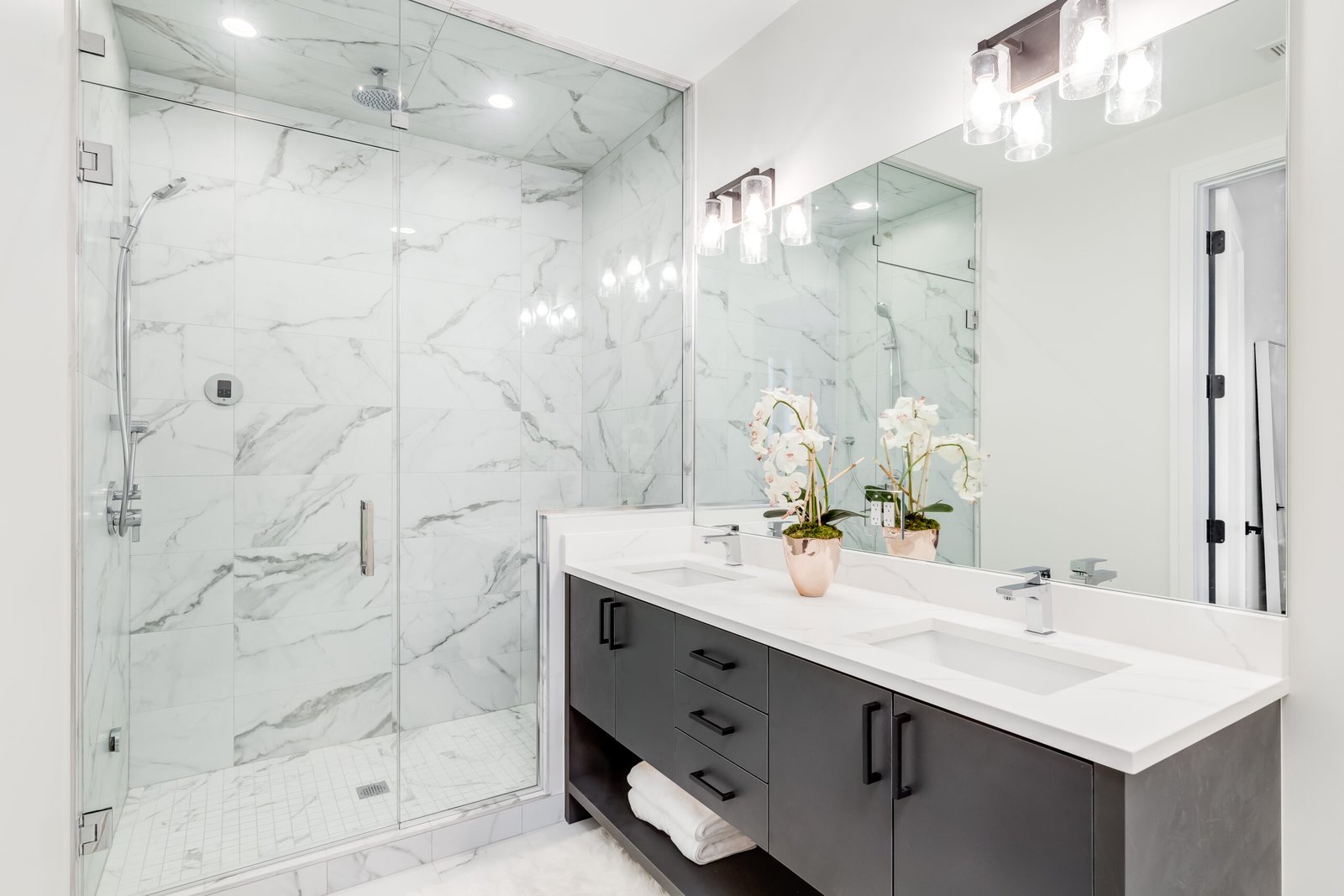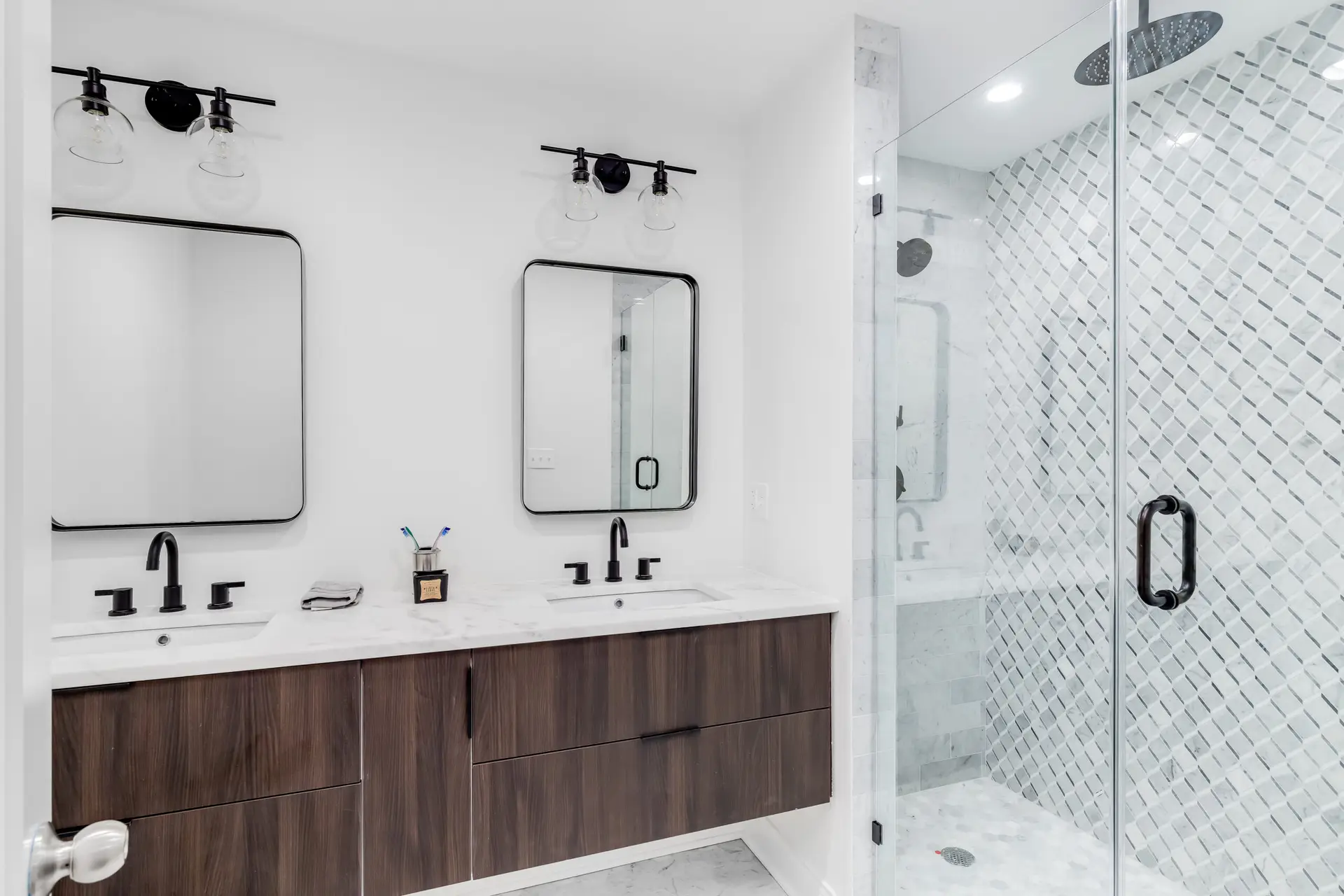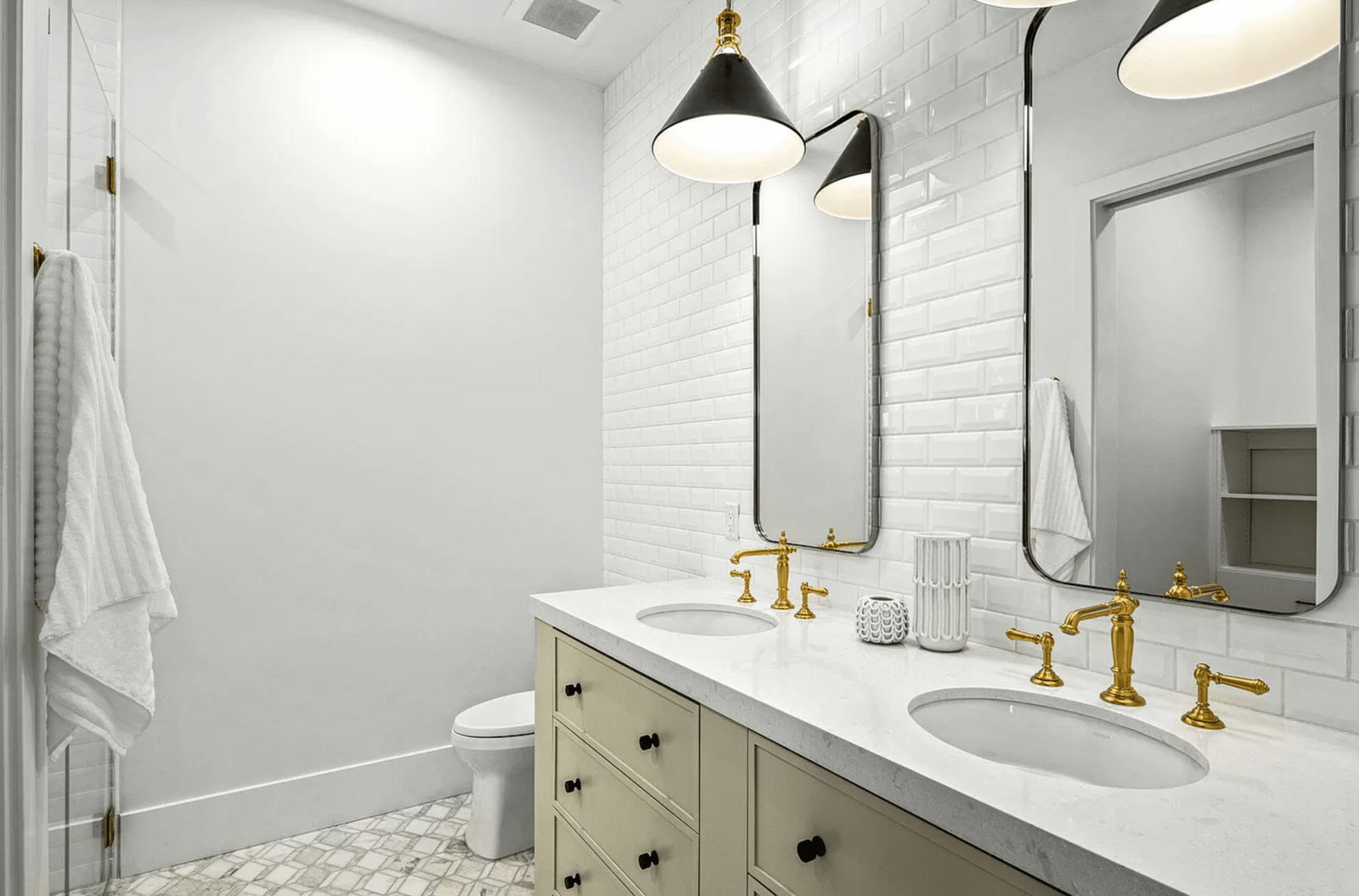1. Why a bathroom remodel matters in Denver in 2026
In 2026, the decision to remodel a bathroom in the Denver Bathroom Remodel metro area isn’t just about making your morning routine better—it’s about making smart financial choices. As housing markets shift, labor and materials fluctuate, and buyer preferences evolve, understanding the cost vs return for a Denver Bathroom Remodel becomes essential. This guide dives into typical costs in Denver, examines the return on investment (ROI) you might realistically expect from a Denver Bathroom Remodel, and offers a data-driven framework to help you decide whether now is the right time.
Prospective buyers in Denver often have specific preferences, making a Denver Bathroom Remodel a strategic investment.
A well-executed Denver Bathroom Remodel can significantly enhance your living space and increase your home’s overall value.
When considering a Denver Bathroom Remodel, it is essential to evaluate both costs and potential returns on investment.
2. Denver’s Remodeling & Market Context
Another source estimates mid-range bathroom renovations in Denver at about $20,000–$35,000, with luxury projects going above $40,000.
On the value side, data from the “Cost vs Value” report for the Mountain region (including Denver) shows that a mid-range bath remodel recouped around 73% in recent years.
In short: you’re investing in a market where updated bathrooms are expected by many buyers—but also where cost pressures and risk of overspending are real, particularly with Denver bathroom remodels.
Investing in bathroom remodeling may offer substantial returns if executed with careful planning and execution. For those considering a Denver Bathroom Remodel, understanding the market trends and buyer expectations is crucial. The importance of a Denver Bathroom Remodel cannot be overstated, especially as buyers increasingly seek modern and functional spaces.
3. Typical Bathroom Remodel Costs in Denver (2026 Estimates)
Let’s break down cost ranges you’ll see in Denver for 2026, building on current 2025 data and projecting modest inflation/market pressure.
Cost Ranges by Scope
| Scope Level | Estimated Cost (Denver) |
|---|---|
| Cosmetic Refresh/Powder Room | $12,000 – $22,000 |
| Mid-Range Full Bathroom | $25,000 – $45,000 |
| Luxury/Primary Suite Remodel | $45,000 – $80,000+ |
These numbers are derived by updating 2025 estimates: e.g., one guide states $12,000–$20,000 for a “basic refresh” and $20,000-$40,000 for mid-range.
Another shows per-square-foot cost for Denver at roughly $250-$350 for standard remodels in 2025.
Per-Square-Foot Benchmark
For a 50 sq ft bathroom:
- At $300/sq ft ⇒ $15,000
- At $400/sq ft (luxury) ⇒ $20,000+
Scaling up to a 100 sq ft primary bathroom at $350/sq ft ⇒ $35,000.
These figures align with Denver’s higher cost base.
Cost Breakdown by Component
Understanding the typical breakdown helps you allocate budget wisely:
- Demolition & disposal: $2,500-$5,000 in many Denver projects.
- Plumbing updates/relocating fixtures: $1,700-$5,000.
- Electrical/ventilation: $1,000-$4,200.
- Tile & flooring: $2,200-$8,000 depending on size and finish.
- Fixtures/hardware: $1,500-$12,000+ depending on level.
4. Return on Investment (ROI) — What to Expect
Knowing your cost is half the equation; the other half is what value you’ll recover when it comes time to sell (or how much your equity improves).
Recent ROI Data for Denver
By understanding market demands, your Denver bathroom remodel can be tailored to attract potential buyers.
- A “mid-range” bathroom remodeling in the Mountain region recouped around 73% of cost, according to the 2024 Cost vs Value report.
- Local Denver remodeling specialists cite ROI ranges: refresh-level 75-85%, mid-range 70-80%, upscale 65-75%.
It’s important to note that a Denver bathroom remodel should align with current trends and buyer needs to maximize ROI.
Realistic ROI Scenarios
Let’s apply this to cost ranges:
| Scope | Cost Estimate | ROI Estimate | Estimated Value Added |
|---|---|---|---|
| Refresh | $15,000 | 75% | ~~$11,250 |
| Mid-Range | $35,000 | 70% | ~~$24,500 |
| Luxury | $65,000 | 65% | ~~$42,250 |
So if you spend $35,000 on a mid-range remodel and recover 70%, the increase in value is about $24,500—meaning you absorb about $10,500 in cost after factoring value added.
Key Take-aways
- ROI is good, but not 100%. You should expect to recover perhaps 65-80% depending on scope and market.
- The larger and more luxurious the remodel, the lower the percentage ROI tends to be.
- Value added isn’t just about the sale price—faster sale, fewer concessions, stronger listing appeal all matter.
5. Data Table: Costs vs Returns for Denver 2026
Here’s a deeper table covering more scope levels for Denver in 2026:
The appeal of a Denver bathroom remodel can create a significant difference in a property’s marketability.
| Scope Level | Cost Estimate | ROI % Estimate | Estimated Value Added | Net Cost (Cost – Value Added) |
|---|---|---|---|---|
| Budget Refresh | $12,000 | 75-85% | $9,000-$10,200 | $1,800-$3,000 |
| Standard Guest Bath | $20,000 | 70-80% | $14,000-$16,000 | $4,000-$6,000 |
| Mid-Range Full Bath | $30,000 | 68-75% | $20,400-$22,500 | $7,500-$9,600 |
| Premium Mid-Range | $40,000 | 65-72% | $26,000-$28,800 | $11,200-$14,000 |
| Luxury Primary Bathroom | $60,000 | 60-68% | $36,000-$40,800 | $19,200-$24,000 |
| High-End Luxury Remodel | $80,000 | 55-65% | $44,000-$52,000 | $28,000-$36,000 |
Ultimately, a Denver bathroom remodel should reflect a balance of aesthetics and practicality to satisfy potential buyers.
A Denver bathroom remodel should focus on creating functional spaces that cater to modern living styles.
Understanding the types of finishes that resonate with buyers can enhance the effectiveness of your Denver Bathroom Remodel.
*Based on Denver-market data and projected for 2026.
Interpretation: If you spend $60k and recoup 60-68%, you add ~$36k-$40.8k in value—but you still pay $19k-$24k out of your own pocket (assuming you sell soon).
If you plan to stay longer, paying some premium may be offset by enjoyment, but purely from resale-oriented ROI, caution is warranted for high spend levels.

6. What Drives Better or Worse ROI in Denver
Let’s unpack the factors that push ROI up or down in Denver.
Drivers of Strong ROI
- Good condition to start with: If your bathroom is outdated (e.g., 1990s design), the “improvement delta” is large and buyers will reward that. Local sources highlight that older homes get higher percentage ROI.
- Neighbourhood & home price tier aligned: Spend that matches the neighbourhood’s value range. Don’t over-upgrade beyond what buyers expect locally.
- Functional, desirable upgrades: Walk-in showers, upgraded tile, efficient fixtures, good lighting—these resonate with Denver buyers.
- Limiting structural changes: Keeping plumbing and footprint unchanged keeps costs down and risk low.
- Quality workmanship and materials: Avoid cutting corners. Buyers will penalize poor quality or visible defects.
Drivers of Lower ROI
- Over-customisation / ultra-luxury in a modest home: If you spend $80k in a neighbourhood where homes sell for $400k, your cost may not be recoverable.
- Major structural/plumbing changes: Moving walls, relocating plumbing, adding footprint significantly raise cost but don’t always proportionally raise value.
- Small homes or already updated baths: The “improvement delta” is lower, so ROI percentage drops.
- Market timing & local competition: If many homes in your area already have high-quality baths, the marginal value of your spend is reduced.
- Poor planning/hidden issues: If you uncover water damage, mould, subfloor/structure problems mid-project, costs mount and your ROI suffers.
7. High-ROI Upgrades for Denver Homes
If you’re planning a remodel with ROI in mind, focus resources where they count. Here are stand-out upgrades:
- Walk-in shower or tub-to-shower conversion: A major buyer preference—especially in Denver climate and with aging population.
- Upgraded tile and flooring: Large-format porcelain or low-maintenance stone tiling appeals.
- Water-efficient and smart fixtures: Low-flow toilets, LED lighting, efficient fans—buyers in Colorado pay attention to sustainability.
- Neutral, modern finishes and good lighting/storage: Clean lines, double vanities (where appropriate), good lighting and storage improve functional appeal.
- Keeping layout intact: By not moving plumbing or walls you save major cost and increase ROI percentage.
- Focus on problem baths: If your bathroom is outdated in an otherwise well-kept home, you’ll likely gain most value.
8. When a Bathroom Remodel May Not Be Worth It
There are scenarios where the investment may not fully pay off or may even reduce your net benefit.
- If your home is in a lower price tier and you spend heavily on luxury finishes, the market may not support the higher price.
- If you’re selling immediately and the economy or housing market softens, you may not recoup expected ROI.
- If you undertake major structural changes (changing footprint or plumbing) but plan to sell soon, the extra investment may not realize full value.
- If the bathroom is already fairly updated—in this case the “improvement delta” is small and you’ll recover less percentage.
- If you don’t get quality workmanship or do improper permits, the negative perception can hurt resale.
9. Decision Framework: Should You Remodel in Denver in 2026?
Use this simple decision tree to decide:
Are you selling within 1–2 years?
Yes → Focus on mid-range remodel, align with neighbourhood norms, keep cost manageable.
No → Staying longer than 5+ years → You may invest more for your comfort and enjoyment, knowing ROI is secondary.
Is your current bathroom significantly outdated?
Yes → Remodel has strong case, you can capture large improvement value.
No → Consider a refresh or partial update rather than full gut.
What is your home’s value tier and neighbourhood standard?
If your spend will exceed what typical buyers in your neighbourhood expect, scale down.
What’s your budget and comfort with net cost?
Factor in the table above: after value added, what is your net cost? Is that acceptable for your stay-horizon?
Example scenario:
Home value $450k, current bathroom is 1980s style. You plan to sell in 18 months. Spend $30k on mid-range remodel. With ROI ~70%, value added ~$21k. Net cost to you ~$9k. If you expect quicker sale and better offer, this makes sense. If you spend $60k luxury remodel, ROI maybe 65% => value added $39k, net cost ~$21k. Unless you enjoy it for years, the extra is harder to justify for resale.
10. Practical Steps & Best Practices
- Get at least 3 contractor bids in Denver, check credentials, references, portfolio.
- Define clear budget and scope: Refresh vs Mid-Range vs Luxury.
- Select materials thoughtfully: favour neutral, broad appeal finishes over niche luxury.
- Avoid moving plumbing or major structural changes unless staying long-term.
- Address hidden issues early (e.g., plumbing leaks, subfloor damage, ventilation) so they don’t blow budget.
- Keep detailed documentation: permits, warranties, material specs—buyers notice.
- Time the remodel: If selling, finish 3-6 months before listing so space settles and shows well.
- Monitor comparable homes in your area: what updates do they have? Over-spending relative to your neighbourhood = risk.
- Consider cost vs enjoyment: If you plan to stay, some extra cost may be justified for your comfort.
- Plan for maintenance and durability: e.g., choose tile, fixtures, finishes that endure Denver altitude, climate and usage.
11. Summary & Final Verdict
In Denver in 2026, a bathroom remodel can be a very wise investment—if done strategically. Cost ranges for standard remodels are estimated at $25,000–$45,000 with luxury projects going $45,000–$80,000+. ROI for mid-range projects tends to hover around 65-75%, meaning you’ll recover a large portion of cost—but not all. Importantly, the percentage ROI drops as scope and spend go up.
Therefore:
- If you’re selling soon: Focus on moderate budget, functional upgrades, broad-appeal finishes. That’s when ROI is best.
- If you’re staying long-term: You can spend more for enjoyment, but be aware you’re paying more for lifestyle than resale.
Treat the remodel as both a lifestyle upgrade and a value investment. With proper scope, alignment to your neighbourhood, careful budgeting and high-quality execution, you’ll position yourself to enjoy your space now and capture meaningful value later. In short: yes—it can be worth the investment in Denver in 2026—just make sure you do it right.
In summary, a Denver bathroom remodel can significantly impact your home’s value and appeal. Keep in mind that the quality of your Denver Bathroom Remodel will directly influence your ROI.


